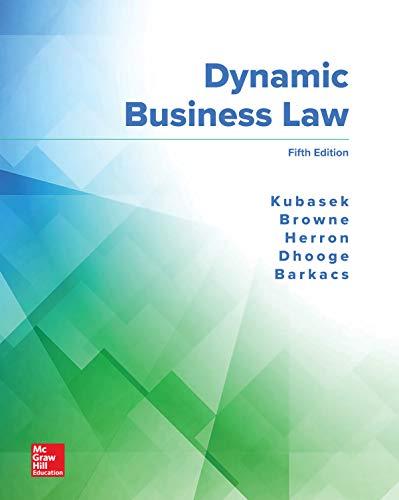Spain divided unroasted nondecaffeinated coffee into five separate classifications. A 7 percent tariff was imposed on three
Question:
Spain divided unroasted nondecaffeinated coffee into five separate classifications. A 7 percent tariff was imposed on three of these classifications. The other two classifications were duty free. Brazil, the principal supplier of the coffee subject to the tariff, alleged that the Spanish classification regime failed to extend most-favored-nation treatment to like products originating from Brazil, thus violating GATT. Spain defended the classifications on the basis that the products were not like products due to differences resulting from geographic factors, cultivation methods, processing, and genetics.
The GATT panel rejected these arguments. The panel noted that most coffees are blends, coffee is universally regarded as a well-defined and single product intended for drinking, and no other state maintained a similar classification scheme. The panel thus concluded that the classification system discriminated against like products in violation of GATT’s most-favored-nation requirement. Do you agree with this decision? Is coffee a single universal product regardless of where it is grown, how it is processed, or what the cost is to consumers?
Step by Step Answer:

Dynamic Business Law
ISBN: 9781260247893
5th Edition
Authors: Nancy Kubasek, M. Neil Browne, Daniel Herron, Lucien Dhooge, Linda Barkacs





